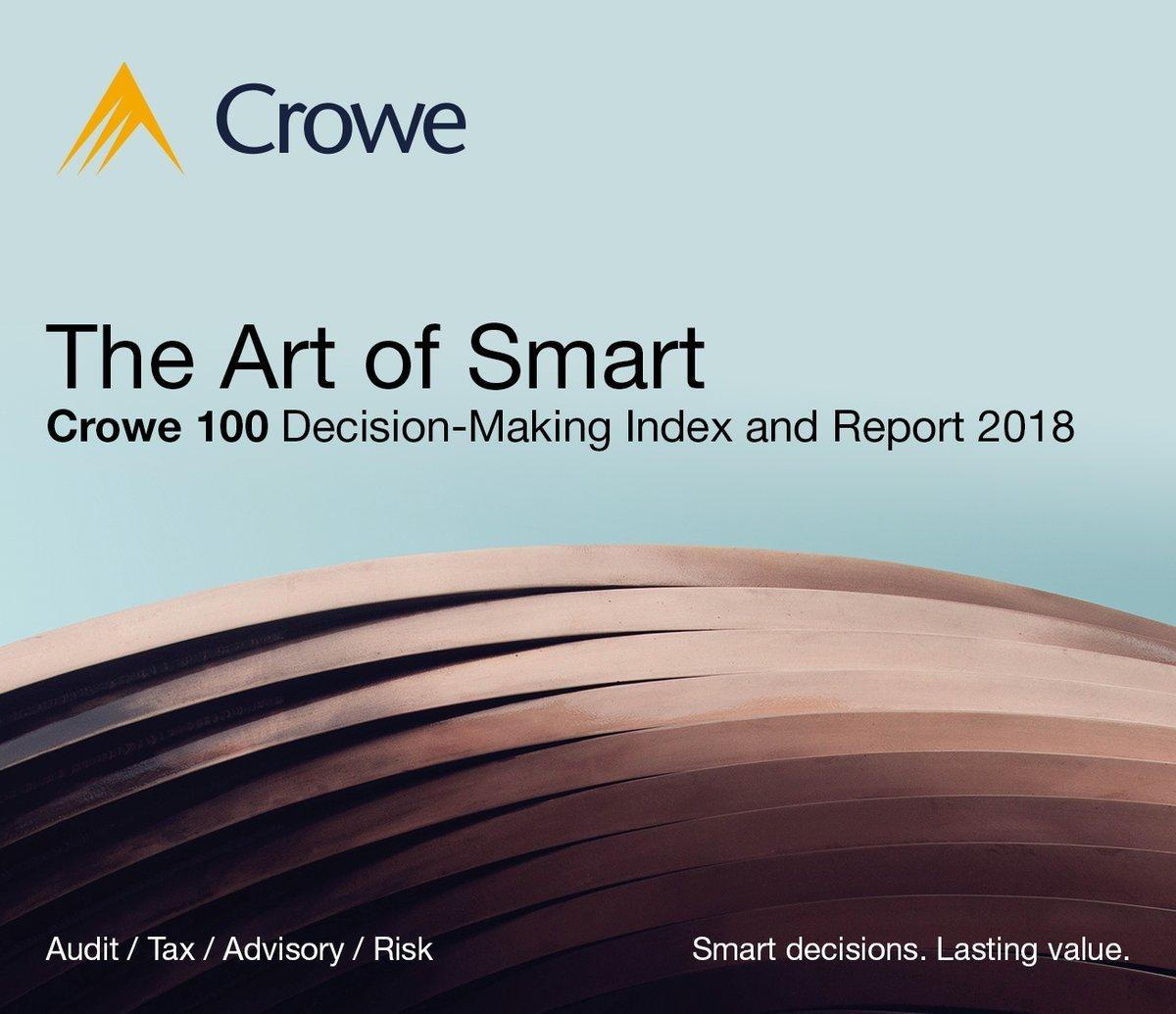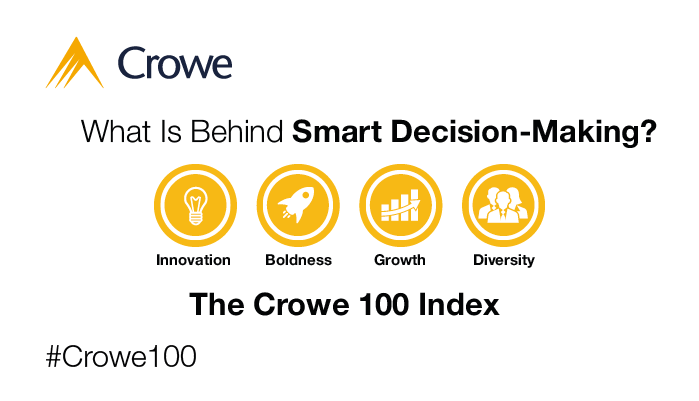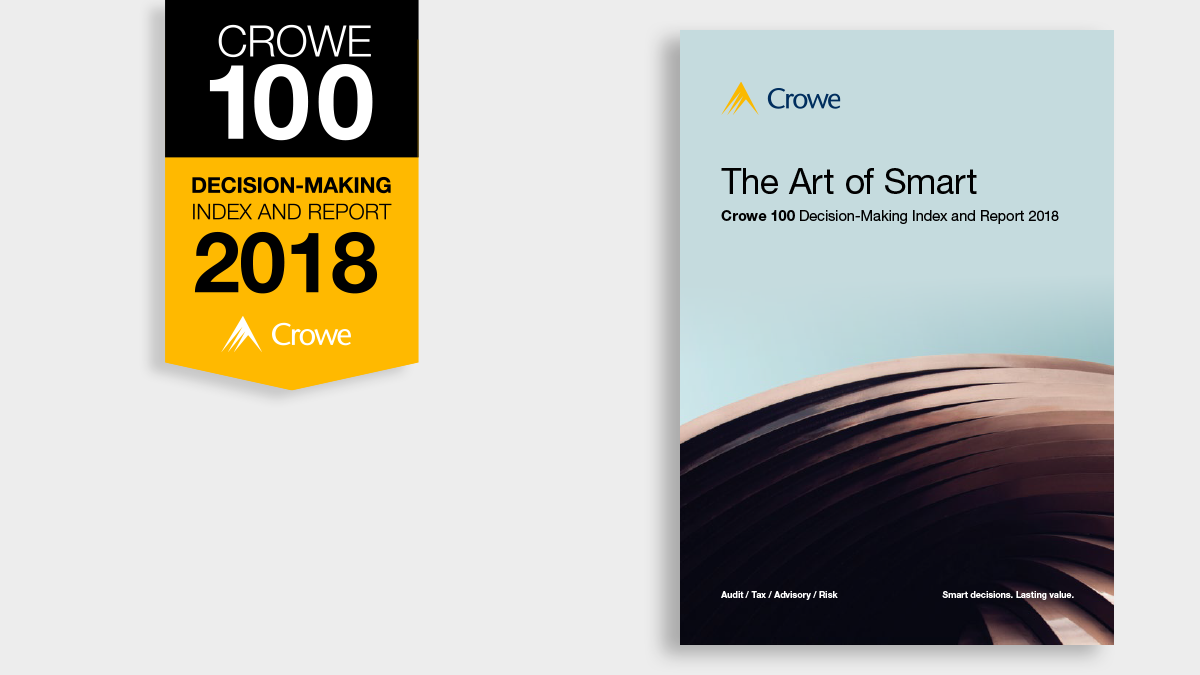Helping clients make smart decisions that create lasting value is at the heart of the Crowe value proposition.
We believe that this is part of what makes us different, so we decided to invest some time in examining what elements lead to smart decision-making. As we shared that question we found a rich and dynamic area of study and thought. We found that many of the world’s brightest minds continue to explore the many facets of decision-making. In making any significant decision, we all face a range of variables and also carry a host of unseen biases that have an influence on us.

We decided to seek the insights of experts around the world, including some of Crowe’s thought leaders, to try and quantify the traits of quality decision-making in the context of corporate success. Using the 2017 Forbes Global 2000 list, we focused on three international sectors where Crowe has deep experience: manufacturing, healthcare and real estate A full methodology statement can be found at www.crowe.com/methodology.

Explained in simple words we broke our analysis of firms along four main components: Growth, Diversity, Boldness and Innovation. Two of these components are purely objective: Growth is based on publicly available information from annual financial reports and Diversity on board and corporate suite composition. In some cases, we used third-party investment reporting and research to augment information. The final two components, Boldness and Innovation, are based on analysis from news.

By combining scores across the four components, we arrived at our ranking of top decision-making companies. While inevitably imperfect, the Crowe 100 Decision-Making Index 2018 explores the quantifiable aspects of decision-making using a combination of related objective data and subjective analysis. What our report and index offer is the benefit of the experience and intelligence of some of the best researchers, business leaders and Crowe thought leaders. In a word, it’s this: perspective. The more relevant perspective a decision-maker has, the better the chance that he or she will build lasting value.